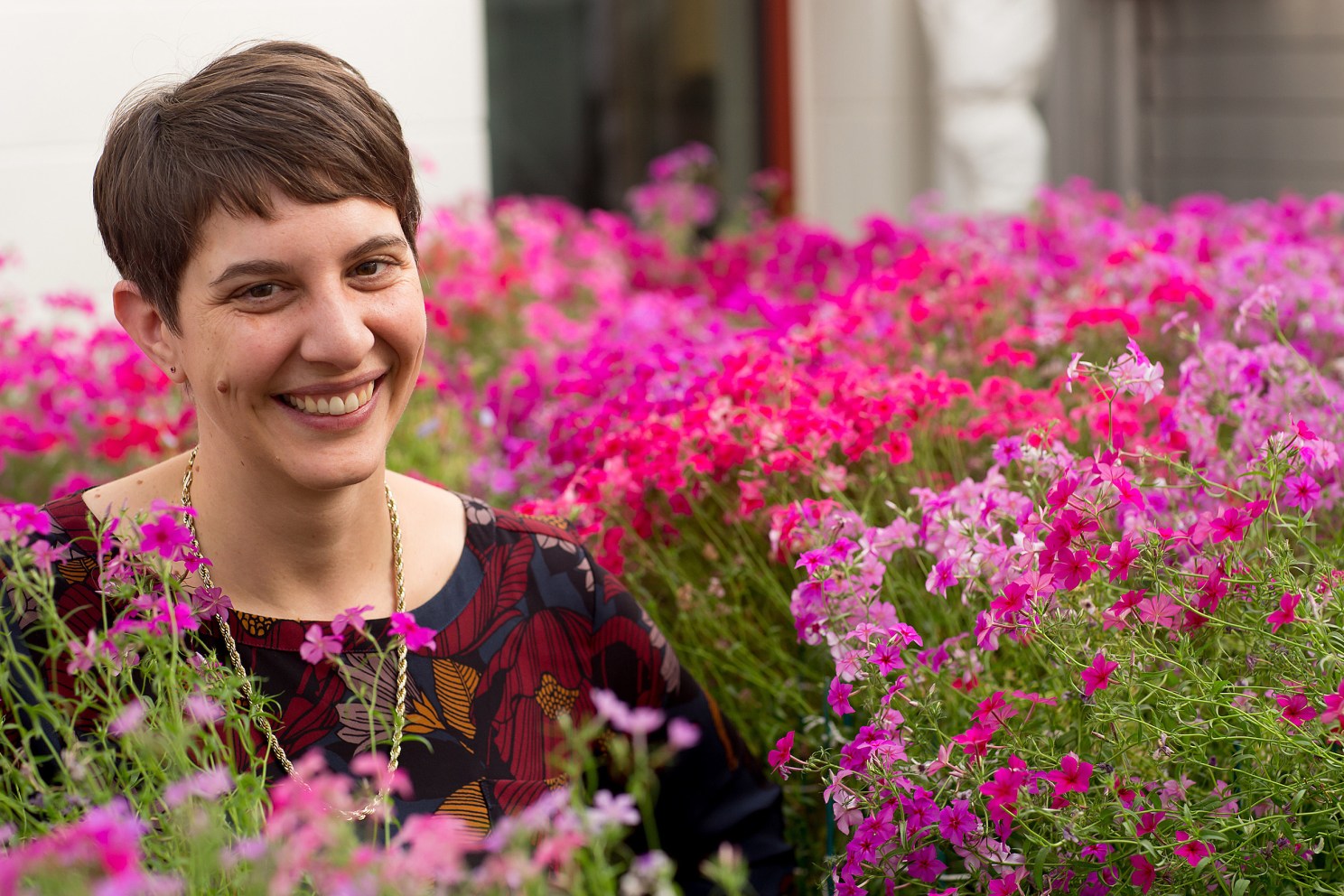Hopkins receives grant to study speciation

Robin Hopkins will use the NSF grand she received to develop a research experience for Harvard students./Kathleen Dooher
Plants fuel the Earth’s biodiversity, connecting humans to all parts of the biological world around them. Giving scientists and non-scientists access to accurate knowledge about the evolutionary forces that generate species is the motivation behind the work of Robin Hopkins, assistant professor of organismic and evolutionary biology at Harvard and Faculty Fellow at the Arnold Arboretum.
Hopkins recently received a $1.3 million grant from the National Science Foundation’s (NSF) Faculty Early Career Development Program. Through the NSF’s Division of Environmental Biology, Hopkins will continue her research of Texas Phlox to both teach and inform the public on relevant topics related to biological diversity.
“Plants are responsible for every bit of energy that is consumed by all life. But humans are plant-blind,” she said. “We don’t necessarily see our connection to plants and have limited educational resources to teach about plants.”
Awarded to inspire both teaching a course and finding other avenues of education and community enrichment in general, the NSF grant will help Hopkins develop a research experience for first-year Harvard College students to study the process of speciation and how lineages evolve to become distinct species through pollination. The students will pull plants apart, then use microscopic and molecular lab skills and tools they may not have had in their high school classrooms to view the plant parts, according to Hopkins.
The grant will also help expand outreach activities through the Harvard Museum of Natural History Glass Flowers collection by developing self-guided activities for students in grades three through 12 and facilitating teacher training courses.
“The exciting thing about the NSF Career grant is that it is specifically designed to enable researchers to enhance both their research and their teaching simultaneously,” Hopkins said. “The goal is to get scientists to incorporate the research into the teaching curriculum, and to figure out ways to get the teaching curriculum to inspire and improve the research.”





